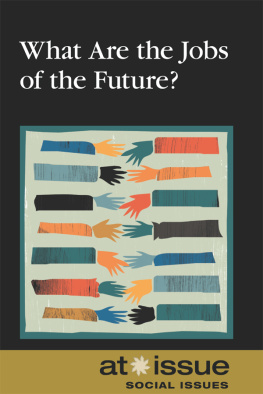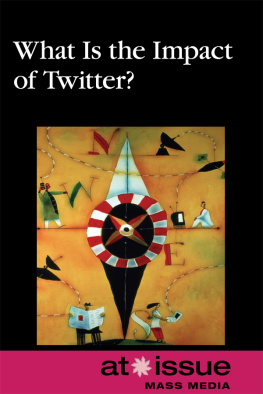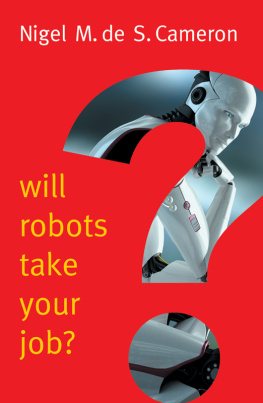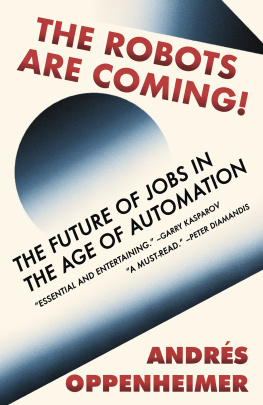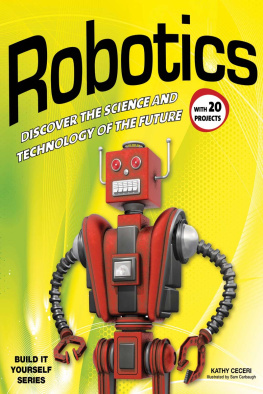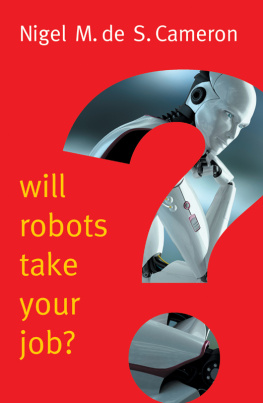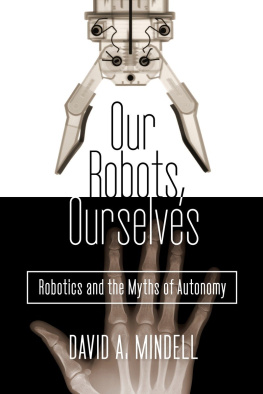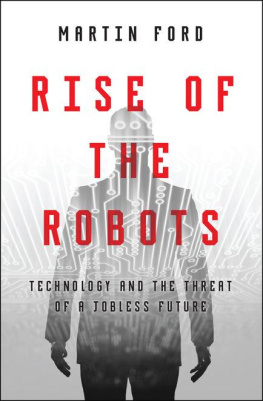Patricia Coryell, Vice President & Publisher, New Products & GVRL
Douglas Dentino, Manager, New Products
Judy Galens, Acquisitions Editor
2015 Greenhaven Press, a part of Gale, Cengage Learning.
WCN: 01-100-101
Gale and Greenhaven Press are registered trademarks used herein under license.
For more information, contact:
Greenhaven Press
27500 Drake Rd.
Farmington Hills, MI 48331-3535
Or you can visit our Internet site at gale.cengage.com
ALL RIGHTS RESERVED.
No part of this work covered by the copyright herein may be reproduced, transmitted, stored, or used in any form or by any means graphic, electronic, or mechanical, including but not limited to photocopying, recording, scanning, digitizing, taping, Web distribution, information networks, or information storage and retrieval systems, except as permitted under Section 107 or 108 of the 1976 United States Copyright Act, without the prior written permission of the publisher.
For product information and technology assistance, contact us at
Gale Customer Support, 1-800-877-4253
For permission to use material from this text or product, submit all requests online at
www.cengage.com/permissions .
Further permissions questions can be e-mailed to
Articles in Greenhaven Press anthologies are often edited for length to meet page requirements. In addition, original titles of these works are changed to clearly present the main thesis and to explicitly indicate the authors opinion. Every effort is made to ensure that Greenhaven Press accurately reflects the original intent of the authors. Every effort has been made to trace the owners of copyrighted material.
Cover photograph copyright Images.com/Corbis.
LIBRARY OF CONGRESS CATALOGING-IN-PUBLICATION DATA
What are the jobs of the future? / Roman Espejo, book editor.
pages cm. -- (At issue)
Includes bibliographical references and index.
ISBN 978-0-7377-7199-2 (hardcover) -- ISBN 978-0-7377-7200-5 (pbk.)
1. Vocational guidance. 2. Occupations--Forecasting. I. Espejo, Roman, 1977
HF5381.W472 2015
331.702--dc23
2014041142
Printed in the United States of America
1 2 3 4 5 6 7 19 18 17 16 15
Introduction
L yft is for getting a ride. Airbnb is for booking a room. TaskRabbit is for finding someone to run an errand. What do they have in common? They are a few of the tech startups shaping the so-called sharing economy. Also known as the peer-to-peer economy and collaborative consumption, its the burgeoning online and mobile marketplace of hiring or renting directly between individuals. You might think this is no different from running a bed-and-breakfast, owning a timeshare or participating in a car pool. But technology has reduced transaction costs, making sharing assets cheaper and easier than everand therefore possible on a much larger scale,1 insists The Economist in a March 2013 article. The big change is the availability of more data about people and things, which allows physical assets to be disaggregated and consumed as services.
Another big change is how the sharing economy is impacting how people make a living. Lyft drivers use their own cars to shuttle people around, earning an attractive $35 an hour, according to the companys website. Airbnb hosts rent out their spare rooms or property, generating significant income in high-priced areas. In a 2012 study by Airbnb, 56 percent of its hosts in San Francisco reported that rental money went to their mortgage or rent, and 46 percent said they spent it on everyday living expenses. And TaskRabbits offer their time or skills for hire to perform small jobs; for some, its become a full-time occupation. For two years, this has been my main source of incomejust riding my bikes around, seeing the sights, picking up random stuff,2 Justin Prim, a bike messenger, tells ABCs Nightline.
In fact, the sharing economy is seen as spurring job creation while the nation recovers from last decades recession. Although the United States as a whole recovered most of these lost jobs by mid-2014, two-thirds of states have not. The sharing economy offers enormous potential to create jobs. Sharing leverages a wide variety of resources and lowers barriers to starting small businesses,3 declare the nonprofit news portal Shareable and the Sustainable Economies Law Center in their 2013 report, Policies for Shareable Cities: A Policy Primer for Urban Leaders. The report contends that the economic benefits are maintained at the local level, keeping profits and employment away from the monopoly of corporations. Sharing is also at the heart of the employment model that is designed to keep wealth and jobs in the community: cooperatives. In the age of global economics, where even money spent locally can quickly slip from local communities, fostering cooperative enterprise creates local jobs that are rooted securely in the community,4 the report states.
Furthermore, some commentators suggest that jobs in the sharing economy offer the flexibility and autonomy a conventional career does not, making it preferable to many workers. Clearly were increasingly piecing together livings through mixes of Gigspart-time, freelance, starting our own businesses, etc.,5 asserts Micha Kaufman, chief executive officer and cofounder of Fiverr, an online marketplace for services. Traditionally, there was one, rigid way to make it: climb the ladder and rise to the top of your company. But that doesnt make sense in a Gig-based type of world, Kaufman adds. Instead, as certain people enter the sharing economy out of need, what they discover is that it affords them a freedom they cant find in a traditional setting, from doing what they love to scheduling their various Gigs in such a way that they have time between projects to get healthy, go on vacation, and be with their loved ones.6
Nonetheless, the sharing economy has its share of critics. For instance, the current lack of regulations governing such services as Lyft and Airbnb has caused an uproar among taxi companies and hotel owners. Thats why Im afraid the muchcelebrated sharing economythe catch-all name for peer-topeer firms that connect people for the purposes of distributing, sharing, and reusing goods and servicesis likely to produce more fights than profits. States could be embroiled for years in political, legal, commercial and environmental battles related to sharing,7 writes Joe Mathews, California senior research fellow at the New America Foundation, in a

